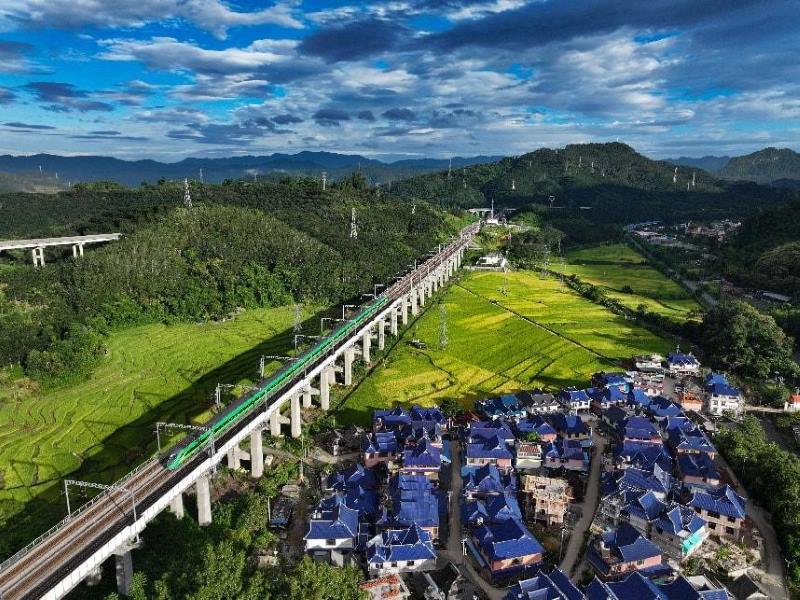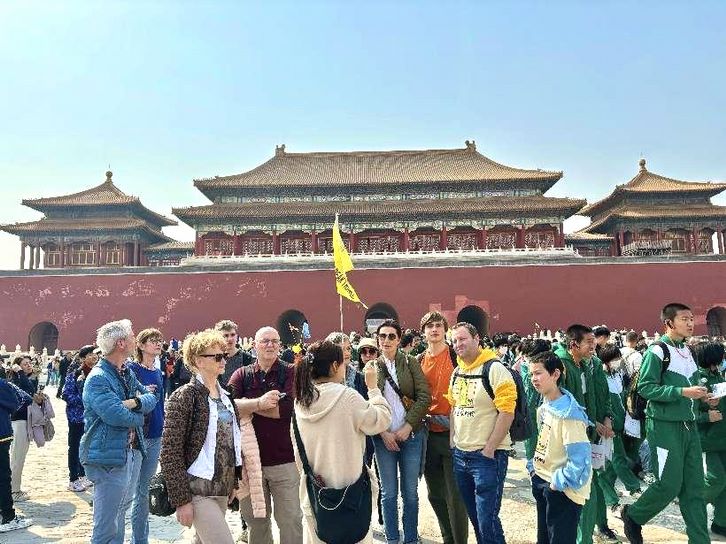Xiong'an accelerates smart-city buildout

Agency : Digital technologies are increasingly embedded across Xiong'an New Area, north China's Hebei province. From autonomous delivery vehicles navigating city streets, to sensors monitoring underground utility corridors, and to massive data processing at the Xiong'an Urban Computing Center, the city is advancing a coordinated program of digital infrastructure, innovation platforms, and smart applications to improve urban operations and public services.
Some 20 meters below ground in Rongdong area of Xiong'an New Area, an integrated utility corridor houses nearly 10,000 devices spanning more than 20 categories, collecting real-time data on pipeline pressure, temperature, and other indicators.
Three-dimensional information modeling supports planning approvals by checking land-use boundaries and floor-area ratios and, during construction, enables collision detection for underground pipelines, said Ma Yongjun, head of the operations of the infrastructure construction company of China Xiong'an Group.
Every building, road, and pipeline in Xiong'an has a corresponding digital model. "Planning and building the digital city in tandem with the physical city, combined with precise sensing, enables more refined, accurate, and intelligent governance," explained Liu Xin, general manager of China Xiong'an Group Digital City Technology Co., Ltd. To date, Xiong'an has completed over 500 kilometers of digital roads and deployed more than 5,600 5G base stations.
Citywide data capabilities are anchored by full IPv6 enablement across terminals, systems, and websites, expanding address capacity, improving traceability, and strengthening data security. The Xiong'an Urban Computing Center, built on advanced cloud computing architecture with ultra-large-scale storage, has accumulated more than 33 billion data records and supports complex analytics for government services, urban planning, and ecological monitoring.
An expanding innovation ecosystem is unlocking digital-economy potential. Xiong'an has established more than 10 major innovation and industry platforms, including a sci-tech innovation center and an AI industrial park, catalyzing high-end digital industries. Projects in intelligent hardware such as servers, robotics, BeiDou navigation modules, and cybersecurity are scaling up. The area has attracted more than 500 software and information-service companies and over 60 key AI enterprises, forming a comprehensive ecosystem for smart-city technologies and large-scale application rollout.
Benefits are visible in daily life. At the Rongdong administrative committee's urban operations center, an alert was triggered when an elderly resident's smart water and gas meters showed no expected activity; a community worker arrived within five minutes and provided timely assistance. "Smart meters for water, gas, and heating are connected via the Internet of Things, enabling remote readings and real-time monitoring of household consumption," said Zhao Chenglong, Party head of Dongxili community in Rongdong area.
Beyond community services, smart applications are advancing in governance, environmental protection, low-altitude airspace management, transport, and energy. Earlier this year, the city integrated the DeepSeek AI model into the computing center and launched two smart government-service assistants, accelerating information queries and administrative processing. Dozens of intelligent applications have been introduced in urban management and public services.
With continuous deployment of new applications and faster conversion of innovation into results, Xiong'an New Area is working to build a new model of urban development, one driven by digital technologies and empowered by intelligence.
-By Wan Xiubin, Zhang Tengyang, People's Daily














प्रतिकृया दिनुहोस